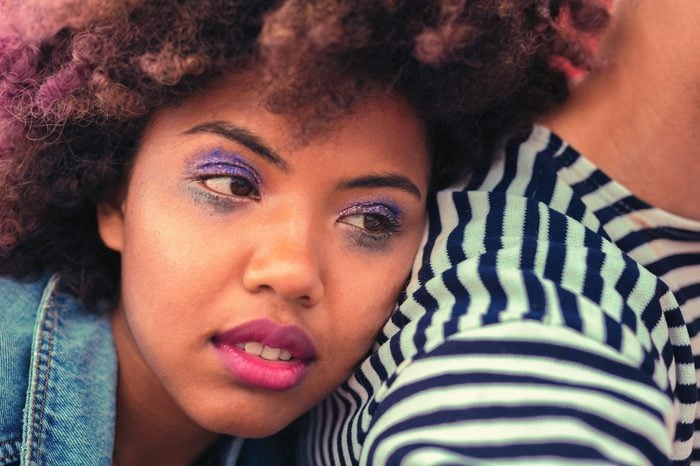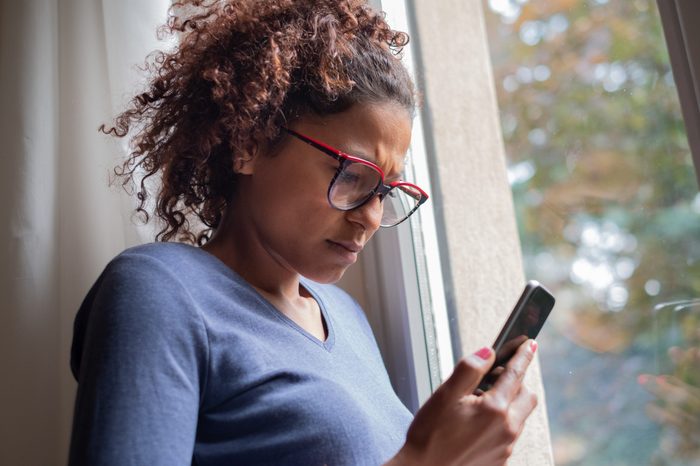
What is a love addiction?
When people were singing along to Robert Palmer’s “Addicted to Love” in the ’80s, few people knew that love addiction was a real thing. However, it is very real, and many people struggle with this lesser-known addiction. According to Psychology Today, a love addiction can be defined as a “maladaptive, pervasive, and excessive interest” in one or more romantic partners. The love addict can feel a lack of control, lose interest in other things they normally enjoy, and experience a variety of negative consequences. On the other hand, these are the signs of a healthy, solid relationship.
Licensed psychologist Erika Martinez shares that up to 10 percent of the general population in the United States has a love addiction, which is a behavioral or process addiction. Like people who are addicted to food, love addicts cannot reasonably be expected to abstain from giving and receiving love, but they can learn to manage the addictive behavior. Having just one symptom of a love addiction does not mean that you are addicted to love. However, having a combination of symptoms can be problematic, though a true addiction can only be accurately assessed by a therapist. But if you are experiencing dissatisfaction with your love life, it might be time to take a long, hard look at the patterns in your relationships and see whether any of these classic signs of love addiction apply to you.

Feeling desperate when a partner needs a little space
Do you find it intolerable when a partner puts even a little distance between you? Does your level of upset rise to outright devastation right away? That level of pain and anxiety is disproportionate to the situation and can indicate a love addiction. According to psychotherapist Joyce Houser in her book Someone To Talk To, you should talk to a professional about these intense feelings. Willpower alone is often not enough to overcome a love addiction, and therapy can play an important role in recovery, as can other sources of support such as Sex and Love Addicts Anonymous. On the flip side, if your partner is asking you to do these 10 things, it’s time to leave.

Finding it hard to set boundaries
Billy Joel may have sung about going to extremes in relationships, but if you consistently go over the line in real life, serious problems may be brewing. The solution? Setting boundaries. Unfortunately, the term “boundary” can seem like a scary thing for a love addict; it may inspire thoughts of keeping your partner separate from you. However, healthy boundaries actually bring people closer together because it empowers them to show a mutual respect for each other.
Boundaries can be literally anything that you need in your relationship to feel good. For example, you may get irritated if your partner calls you a certain nickname. However, if you have a love addiction, you may irrationally fear that your partner will leave if you explain that you don’t want to be called the irritating nickname. Therefore, you suffer in silence when your partner would probably be more than happy to accommodate your request. For an example that’s a little more serious, experts explain that some love addicts don’t turn down sex even if they don’t want to have it. They instead do whatever their partner wants. That’s ultimately not healthy for the relationship, and it certainly isn’t good for the love addict who repeatedly does things they don’t want to do. Part of overcoming a love addiction may include setting firm, healthy interpersonal boundaries and sticking to them.

Cycling in and out of a relationship
If you have a habit of breaking up with your partner and then getting back together, you may feel like you’re in an episode of your favorite soap. While The Young and the Restless is fun to watch, you probably want a little more stability than Victor and Nikki have enjoyed.
What’s the issue with this one? According to Sharea Farmer, a licensed social worker and the owner of RS Counseling & Wellness Center, someone with a love addiction may be more invested in what they can do for their partner and not who they are with their partner. “This person may be in the cycle of breaking up and getting back together because they see their partner as ‘needing’ them to survive,” she explains. “To some, this may seem like a normal part of relationships, but usually this person is only focused on improving their partner. What this means for the individual struggling with love addiction is that their identity is wrapped up in another person’s flaws or vices.”
When that happens, the love addict feels compelled to help reinforce those flaws, either consciously or subconsciously. “Therefore, breaking up and getting back together is just one method of this unhealthy pattern continuing,” adds Farmer. “This creates a cycle in love addiction that looks an awful lot like codependence.” Here are more red flags that you’re in a co-dependent relationship.

Idealizing love and believing it can overcome anything
You may be in trouble if you are in an unrequited love situation, especially if you just can’t let go because you think things will somehow work out in your favor. “People experiencing love addition generally subscribe to a belief that their love can overcome anything,” says psychotherapist Judi Cinéas, PhD. “They believe in the power of love to a degree that would allow the person to also believe that they can have their desired results with the other person. The person also experiences some joy in the process itself; they get a sense of pleasure in the contemplation of what could be. Thinking about the other person is pleasing, although these emotional highs can lead to negative feelings or actions when they are reminded that the other person is not interested in taking that emotional journey with them.”

Feigning an interest in something just to impress a partner
It’s normal to become interested in something just because a crush likes it. However, there’s a fine line between opening your mind to a new interest and feigning a passion for something just to impress someone. If you are willing to spend a lot of time rearranging your life around an interest that bores you, think about whether you are doing this just to win over a potential partner. In such a situation, love addiction may be at play.
Clinical psychologist Carla Marie Manly, PhD, cautions, “It’s normal and natural to show genuine interest in a partner’s hobbies, work, and other life interests. However, if this interest is over-amplified or a sheer pretense to draw in a partner, genuine love is generally not at work. When addictive tendencies lead an individual to pretend to be who they are not—which includes feigning interests—the relationship is not being built on truth and authenticity.” Here are more habits that you think are loving but are actually dangerous.

Abandoning commitments to seek a romantic relationship
Love addicts are sometimes willing to back out of meaningful commitments like family reunions or weddings to pursue a crush or look for love. That need to be soothed by love can be so overpowering that it makes all the other aspects of their lives seem unimportant in comparison. Licensed marriage and family therapist Shirin Peykar explains, “Love addiction is a compulsive and chronic pattern of behavior to soothe uncomfortable feelings and to feel worthiness through the love of another, which is unattainable. The belief that true love will save them is what gets love addicts into constant trouble because they often find themselves in toxic, unhealthy relationships. Only when they acknowledge their dysfunctional patterns of relating can there be healthy love on the horizon.”

Quickly going from one relationship to the next
Often, people who are struggling with a love addiction do not feel OK unless they are in a relationship. That can cause them to jump from one unhealthy relationship to another. Every individual has their own reasons for rebounding so quickly: Many can’t stand the thought of being alone, while others hope the next one will be better. Whatever the case may be, love addicts are often driven to seek another relationship right after a breakup. However, without the breathing room you need to fully explore why your old relationship didn’t work, it can be hard to make healthier choices in the new one.
One of the ways that a therapist may suggest you start to heal and move on from a love addiction is to allow yourself to grieve and experience the underlying pain that is causing the addiction in the first place. That may include grieving unsuccessful past relationships, not just the most recent one. Read more about the signs you’re in a rebound relationship.

Seeking relationships with unavailable partners
If you continually find yourself in situations where your partner is either married or emotionally unavailable, it’s important to look at that pattern. Some people who struggle with love addiction subconsciously seek out people who can never fully return their love or be there for them in a full romantic relationship as a way to protect themselves. Although this seems counterintuitive because it’s actually setting them up for pain, the love addict doesn’t see it and is often driven by a subconscious, self-destructive drive. Just as alcoholics will still drink too much even when they know the horrific consequences, love addicts will engage in self-destructive behaviors that they can’t seem to stop without help. Psychology Today says that love addicts need to learn self-soothing techniques as well as how to stand alone.

Mistaking a great night of sex for a love match
Making love doesn’t mean that you can inspire someone to love you. However, sometimes love addicts mistake sex for love. In fact, mistaking a great night of sex for a love match is a symptom of love addiction, according to sex and relationship expert Kryss Shane. “This occurs when the individual cannot differentiate between the physical and biological reactions of sexual intimacy and the bond created for an emotional love match. In some cases, the individual may complain of feeling as if each sexual partner has promised them the world, then ripped it away. In reality, one person saw the experience as physical, whereas the other (the love addict) felt it to be an instant forever bond.”

Having irrational fears of being alone forever
If you have an overwhelming fear of never being loved or never being in a relationship again, it’s important to explore the cause of it. “A fear of being left, abandoned, or being ‘alone forever’ oftentimes hinders my love-addicted clients from rationally evaluating their relationship,” shares therapist Lynn Zakeri. “Instead of assessing whether a partner makes them happy or is good for them, someone with a love addiction will experience a paralyzing fear of being alone. It’s more like the love addict will fight hard to make their partner love them, rather than fighting hard because they’ll miss the partner. It skews the entire premise of the relationship.”

Being obsessive
Do you find yourself thinking about a new love interest all the time to the point where you can’t focus on anything else? Yes, many people think about their crush often, but a love addict may focus to the point where they stop seeing friends and repeatedly miss deadlines at work. It crosses the line when the crush becomes an obsession and starts to negatively impact your life, yet you feel powerless to stop it.
If that has happened, think twice about how healthy the budding love is. “Falling in love quickly and thinking someone is perfect without giving the relationship an opportunity to grow is like boarding a plane not knowing where it is going,” explains therapist April Kirkwood. “Tracking their every move on social media, becoming friends with their friends, and going to great lengths to change yourself based on their comments are all excessive, unhealthy, and self-defeating. Balance is lost, and it’s an exhausting way to live and a disastrous way to love.”

Staying in an unhealthy relationship
Do you know that your relationship isn’t good for you, but you want to stay anyway? What makes a relationship unhealthy varies from couple to couple, of course. But generally, it’s problematic if it worsens your life or otherwise feels toxic to your well-being. A love addict may stay in a verbally abusive relationship because they have a very strong need for their partner and a fear of losing love. Of course, it’s not always obvious that you’re in a bad situation. These are the subtle signs you’re in a toxic relationship.
Christian counselor and relationship expert Kevon Owen explains it this way: “Think about literally any other kind of addiction out there. It would be difficult to quantify the kinds of abuse or harm that a person would go through to get to a substance they were addicted to or to a habit they’re addicted to. Additionally, think about how common it is to hear that an addict has been abused or taken advantage of in their desperation for what they pursue.” The resulting tunnel vision can cause a love addict an immense amount of suffering. They may lose perspective regarding the mistreatment they’re receiving and may start to feel worthless.

Needing emotional intensity to feel OK
Another telltale sign of a love addiction: feeling a consistent need to seek out emotional intensity in order to feel OK or to feel better when you’re down. Emotional intensity can be anything from full-blown drama to an extreme feeling of pleasure or pain. According to Ann Russo of AMR Mental Health Therapy, the root of this problem might go back to childhood issues or young-adult relationships. “In these cases, the individual will typically have had experiences of abandonment or lack of expressive love in previous significant relationships,” she explains. “This can cause a need for emotional intensity. The intensity can signify the idea of being loved and also give the person a sense of security in the relationship. Emotional intensity does not ultimately equal positive love or security; rather, it is a symbol of past trauma that could be addressed healthily in individual or couples therapy.”

Finding happiness only in a partner
If you only feel happiness or a sense of feeling “high on life” when you are with your romantic partner, that’s a red flag. Psychotherapist John Sovec points out that there is neurobiology to falling in love. “When a person starts to fall in love with someone, their body and brain get stimulated and start to release huge amounts of oxytocin and dopamine. These chemicals, known as the feel-good chemicals, make us see a partner as perfect and the source of personal happiness. These chemicals can overwhelm our common sense and make the person of fascination a stimulus for chemical response and, thus, addiction energy.”
Psychology Today also reports that being separated from a romantic lover can decrease dopamine (a reward chemical) in the brain. Although no studies have concluded whether there are more of these neurochemicals present in the minds of love addicts, the things that cause a person to have an addictive personality may also make them vulnerable to reacting strongly to these feelings. If they then start relying solely on their partner to feel boosts of happiness, that can cause severe short-term and long-term problems in a relationship.

Feeling defined by the relationship
“One of the roots of a ‘love addiction’ begins when an individual has trouble attaching to a person in a healthy manner,” says licensed professional counselor Robert Magill of Magill Counseling Associates. “Attachment simply means how we relate to other people, but if an attachment isn’t healthy, it can set us up to struggle with relationships.”
Many people want to be in relationships. After all, few people set out to be alone. Relationships can be validating and fulfilling. However, if a love addict looks to their relationship to feel worthwhile and valuable, that will probably lead to trouble sooner or later. Magill believes that this can lead a love addict to remain in an unhealthy relationship for too long. They may also be too self-sacrificing and have other relationship issues that stem from insecurities and a fear of rejection.
Magill adds that love addicts often ask themselves who they are if their partner leaves them. They may also wonder who they are as a person if they can’t maintain a relationship. Although not everybody who questions themselves in this way will be a love addict, feeling that your worth is tied to a relationship can mean that it’s time to evaluate your situation and perhaps even see a counselor. Next, check out these expert-backed relationship tips to get the love that you want.
